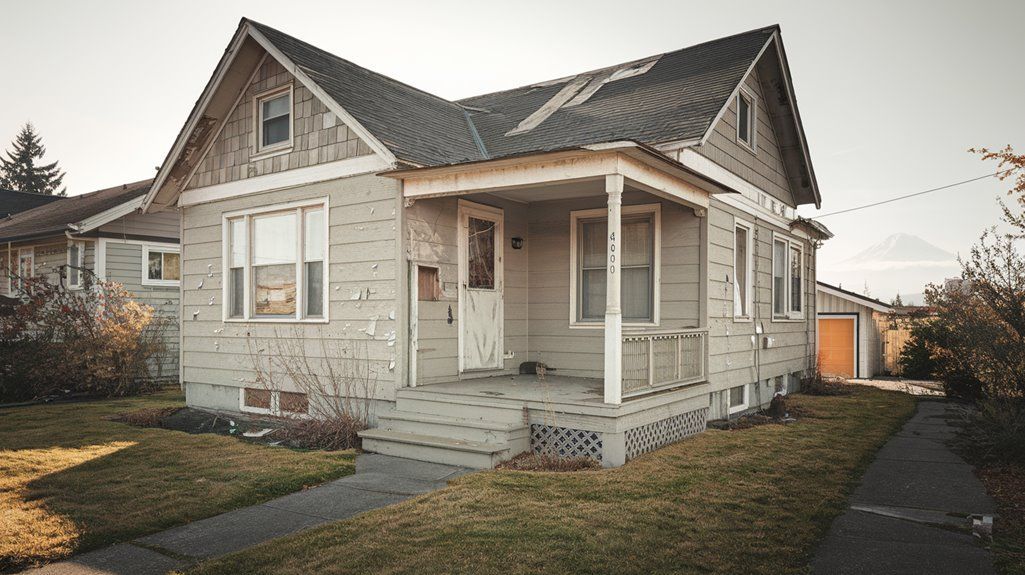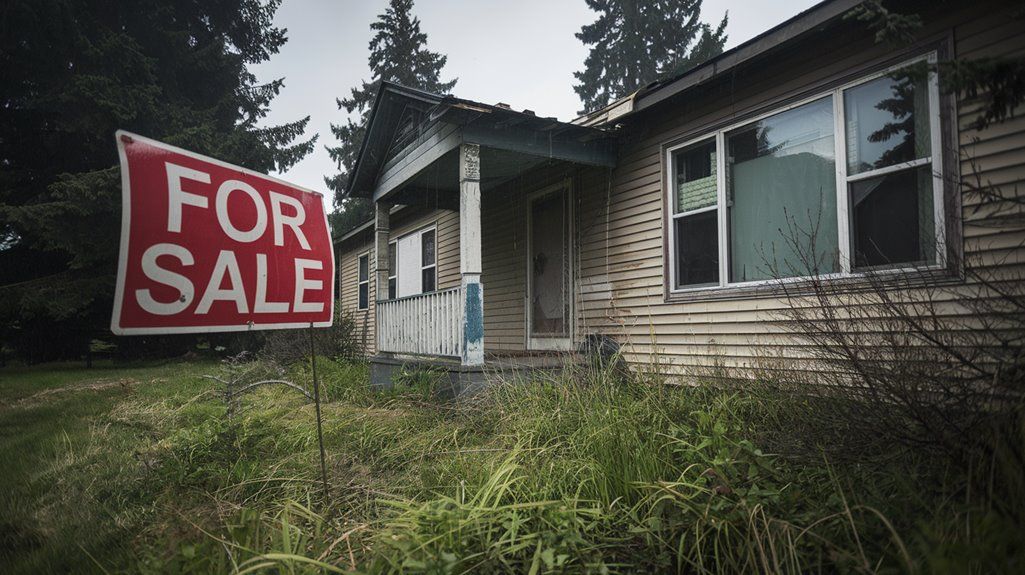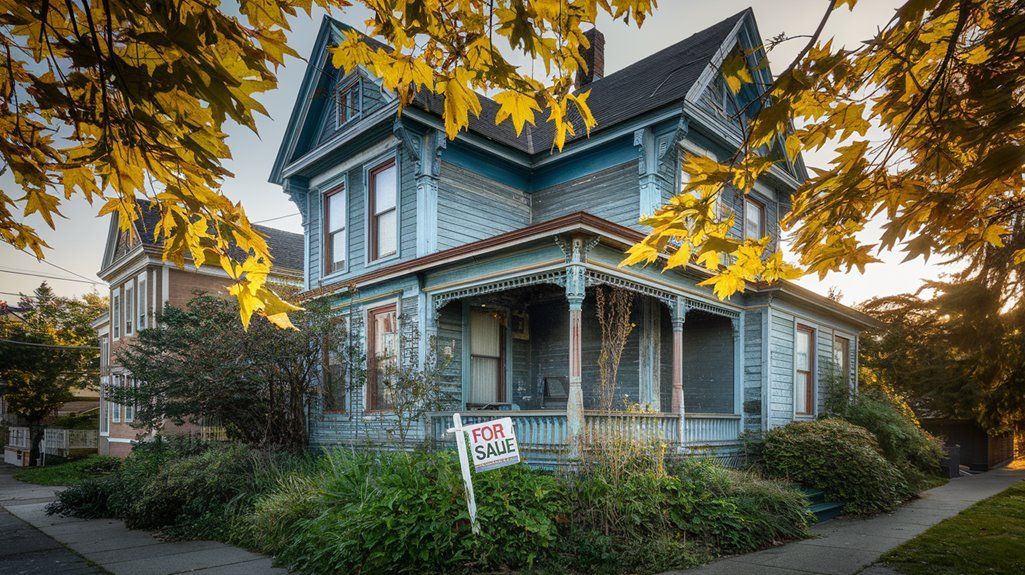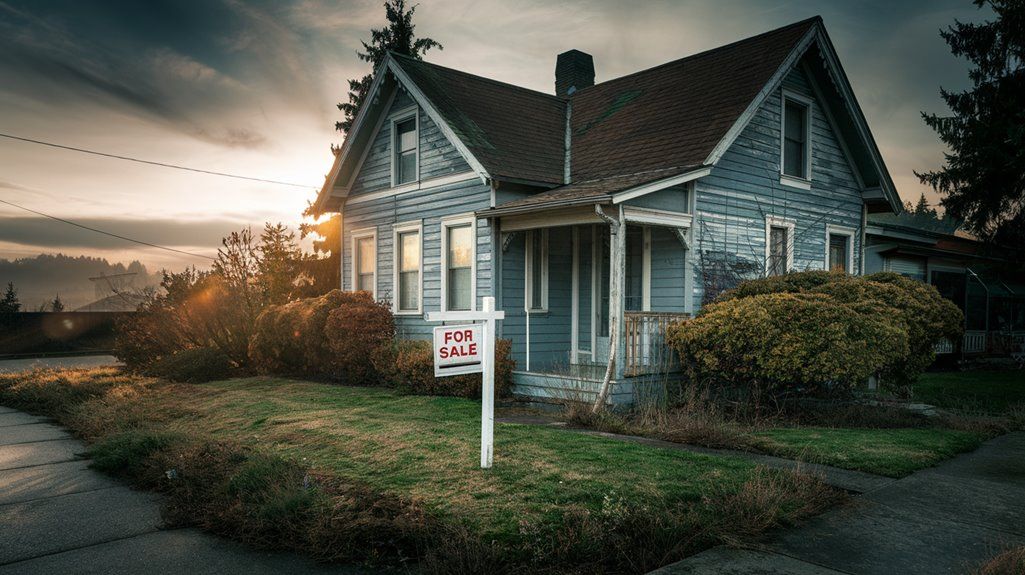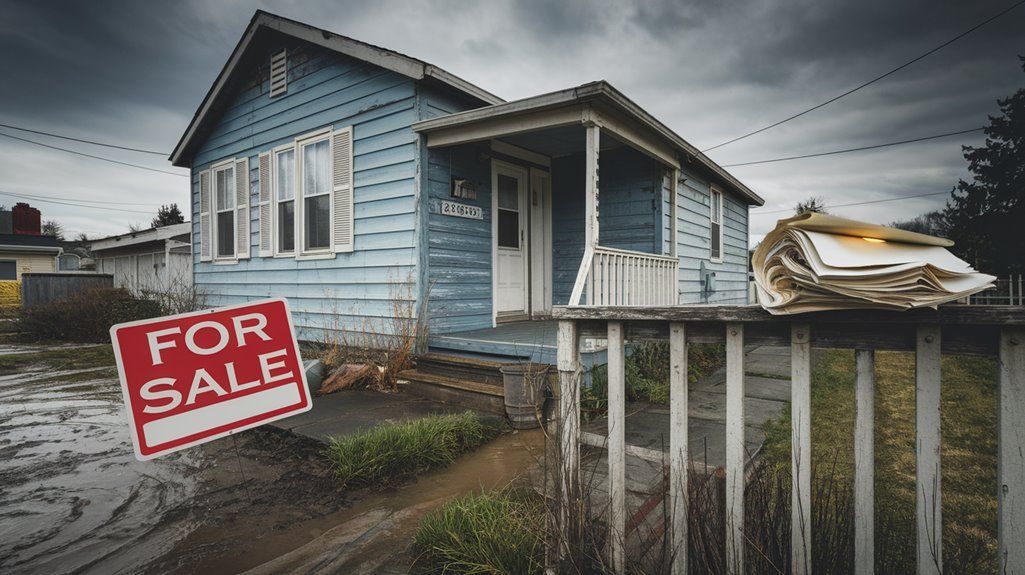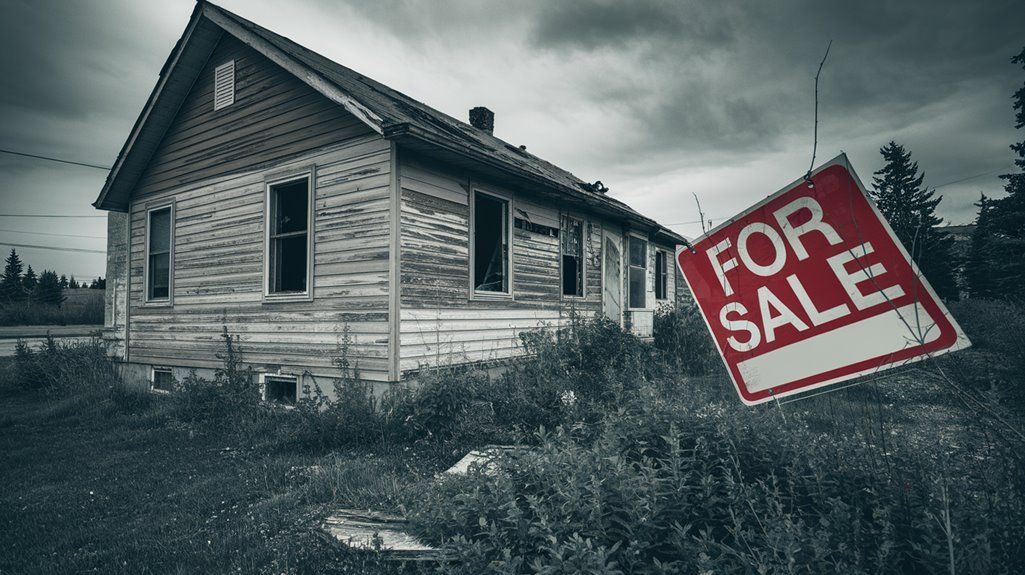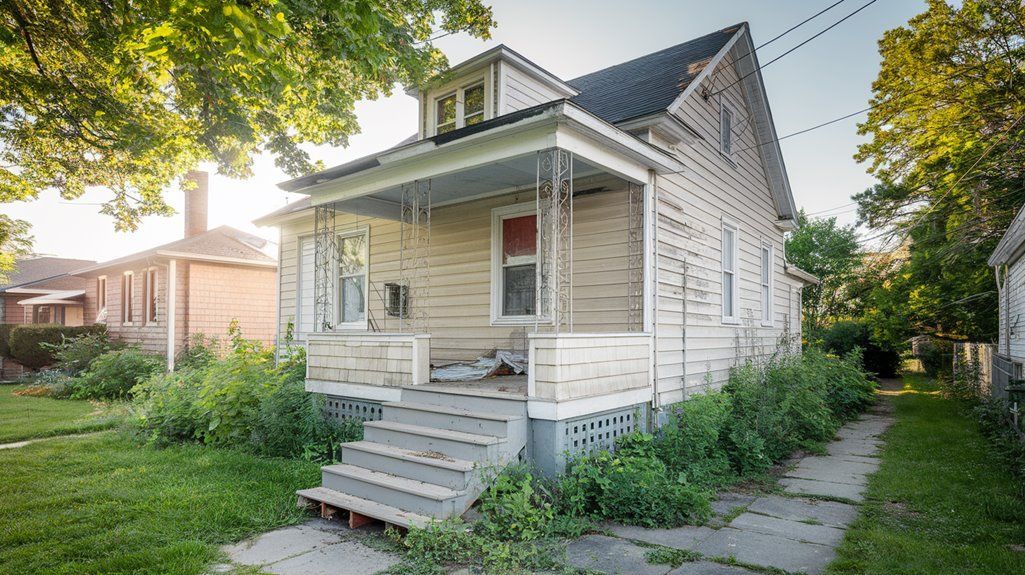Squatters Rights Washington
Do you own property and notice squatters trespassing on your land in Washington? What are you going to do about it? Well, squatters aren't just ordinary bodies that wander onto your property. They're individuals who live on or occupy someone else's land without legal permission from the owner. They may also use your property for their own benefits, such as building a temporary dwelling or using it to grow crops and harvest resources. Just like everyone else has rights, squatters are also protected by laws.
For generations, the legacy of squatters’ rights has been an integral part of the history, culture, and legal framework of
Washington State. Squatters’ rights, also known as adverse possession, is an ancient concept that allows individuals to gain legal title to a portion of land by living on it openly and continuously for a specified period of time. Squatters' rights in Washington State are governed by state statutes that specify the necessary requirements to establish ownership.
Squatters rights Washington allows them to utilize the property of someone else for their own benefit, as long as the actual owner doesn't decide to begin with eviction proceedings. Squatters have the ability to claim ownership of the property through adverse possession.
In order to establish a claim of ownership under squatters’ rights, several conditions must be met:
The claimant's occupation of the land must be actual, open and notorious, exclusive, hostile, and continuous for at least 7 years or more.
The claimant must pay all taxes and assessments on the property for at least seven years prior to filing a claim.
Color of the title must be established in a legal manner ensuring a squatter's claim to the land.
When a squatter meets all these requirements, they can seek legal recognition and protection of their rights in court. If a successful claim is made, the court will issue a title deed of ownership to the claimant. Blindly trying to remove them from your property isn't the right way to handle this situation. Jay Primrose Properties help you understand
squatters rights Washington state whether you are the potential squatter or the landowner. Both parties have to respect each other’s rights and understand state laws.
Who Is Considered A Squatter in Washington?
A squatter is a person who starts using someone else's property without any consent from the original owner. Squatter doesn't have any legal rights to occupy the property unless they receive permission from the owner, or they are granted a tenancy agreement. Squatters can occupy both residential and commercial properties, such as abandoned homes, buildings, parks, and other public areas.
Adverse possession is a legal form of taking over property ownership, while squatting, or taking up unauthorized residence in an abandoned or unmonitored space, is illegal. However, a squatter intentionally occupying an abandoned home might be able to claim adverse possession in court after a certain period of time. This can fall under what’s known as “squatter’s rights,” and the laws governing it vary by state.
For e.g: James owns an abandoned home which is situated in a rural area. One day, he notices that the property has been occupied by a group of people who have no legal authorization to be there. These individuals would be considered squatters since they do not have any legitimate claim to the land.
Now, in this case, James would call the police to try to remove the squatters from his property. However, if he is unable to do so, then he would need to file a legal complaint in court in order to evict them and regain possession of his land. It is not that simple for a person whose property has become squatted on, but it is possible to reclaim the property with the help of legal professionals.
Sometimes landlords get tired of their tenants and leave their properties unattended, making it an ideal spot for squatters to move in.
We buy houses in Tacoma to help those who are constantly getting their properties squatted on.
Difference Between Squatting and Trespassing
Although both activities may look the same when someone commits it on a property, they are actually different. Many people categorize squatting and trespassing under one umbrella, however, that's not the case. According to legal definitions, a squatter finds his way into a property and claims it in his own right. Whereas trespassing is when a person enters someone else's property without the consent of the owner but doesn't have any legal right to claim. A trespasser is subject to a crime under PC 602, which is a misdemeanor offense. This person has to pay a certain amount of money as a fine or even face jail time (up to 30 days to 6 months) depending on the severity of the offense. While squatting is a civil matter and needs to be dealt with through the court.
Can a Holdover Tenant Become a Trespasser?
Holdover tenants or tenants at sufferance are people who are still living on a property after their lease agreement is no longer valid. They have not been granted permission to stay on the property and hence, cannot be considered tenants. Soon or later they will become trespassers if this kind of behavior goes on the property. Owners can take legal action to evict them from their premises.
The landlord can allow them to stay on the property but tenants must continue to carry on with the terms of the existing or previous lease agreement. This is called the landlord's will so tenants can face eviction at any time if the landlord decides to do so. Tenants shall not receive any notice prior to the eviction and they are subject to all the same consequences of trespassing.
What is Color of Title?
The color of title in legal terms refers to the chain of events that have been necessary for the transfer of ownership or title to a property. It is essentially a historical record, a timeline, of who owned the property and how it was transferred from one owner to another. However, it is different from the usual ownership records. In color of title, the claim for the property is not necessarily done through a traditional purchase or sale but rather missing some legal documents or steps in the process. In such cases, if a person has been in open and notorious possession of the property for a certain period of time they may be found to have acquired title by color of title.
Why Do Squatters Have Rights in Washington?
Squatters rights in Washington avoid any misuse of justice that could take place by individuals owning lands. If no rights were there, violence and threat would take place as a result of disputes over certain properties and plots. And this situation is a danger to the state's peace and progress. Vigilante justice can take over and cause chaos in other areas of life which are essentially what people don't expect in the places they live.
Squatters are given rights in order to ensure that justice prevails. These rights are analogous to those granted to tenants, which exist to protect them against exploitative landlords. Through such laws, all parties' rights in real estate transactions are outlined and negotiations remain largely harmonious.
Do Squatters Pay Property Taxes?
Squatters have to pay taxes to the local or state government in order to stay on the property. For 7 years squatters must pay taxes and continue to do so after that in order for the property to be claimed as their own. In case, there is no proof of paid taxes the court will not decide to take the side of the squatter and evict them from the property in question. As such, it is important for squatters to pay taxes if they wish to use the property.
How Do I Evict a Squatter in WA?
You want to get rid of those squatters making your life difficult, but how do you go about doing so? In Washington state, you can be free of those pesky squatters with the right legal action. Let's get into further details of how exactly it is all possible.
Pick Up Your Phone And Call The Police
If you spot someone on your property who does not have permission to be there, it is time to call the police immediately. Depending on the situation, the police may make an arrest for trespassing or other criminal activity. If squatters are found, you will have to take this matter to civil court.
Once the police arrive at your place they will need some proof that you are the rightful owner of the property. Also, police will have a little bit of talking with the squatter as this isn't any regular criminal situation. You must be patient and don't lose control. It is likely that squatters won't be removed right away, squatters will also have to be heard out by the authorities, and they can explain their situation.
Prepare Eviction Notice
If you have encountered a squatter then it is best to begin with an eviction notice. This process doesn't differ from any other eviction process. You need to get your hands on the appropriate form, fill it out and post it on the squatter's property. It is advisable that you serve a 7-day eviction notice to give them ample time to move out without escalation.
Even though there isn't a lease agreement between you two, evicting is the right thing to do here. Keep in mind, don't delay this any longer as you're giving an advantage to the squatter by not taking action.
File For Eviction In Court
Once they receive the eviction notice, they will have a specific amount of time to move out from the property, if they don't comply then you must file an unlawful detainer lawsuit in court. You will need to prove that they are living in a dwelling without paying rent and that you have the right to evict them from your property. Make sure to have all of your documents ready, and other shreds of evidence such as police reports, notices you sent out, and photos of their presence, to support your case. If it's more complex than usual, getting help from an attorney would make sense.
Get Squatters Out Of Your Property
If you win the legal battle, then squatters have no choice but to leave. It might be possible they won't free up the space without force, so you can contact the local sheriff’s office and they will help to move them out of your property. However, a little fee is charged for their help.
Handle The Stuff Left Behind
In properties where squatters find their way, it is expected that they have left behind some stuff. And you are now responsible for this. It might seem like a good choice to dump the items or sell them but you are not legally allowed to do so. Make sure to check the state laws about dealing with abandoned properties and items so that you don't end up in further trouble.
What You Must Not Do?
We understand that as a property owner, you may have thoughts about handling this situation in a different way. Anger, anxiety, and queries may arise in your mind. But we urge you to not do anything rash. Don’t take matters into your hands and don’t use any force whatsoever on the squatters as it will land you in more trouble than before. It is best to follow a legal approach for getting rid of them, and if needed, find help from professionals.
Never change locks or disconnect utilities- Do not use force as a weapon to remove squatters
- Do not threaten or harass the squatters in any way
- Never ignore the situation and hope it will go away on its own
Take these measures into consideration and follow a legal approach to get rid of them faster and safer. With only patience and perseverance, squatters can be handled.
How To Protect My Home From Squatters in Washington?
Precautions are necessary to avoid squatters from hijacking your property, they become stronger as time passes. To play it safe, the best way to protect your home from squatters in Washington is to make sure that your property is secure at all times.
A
squatter may gain adverse possession of the property through involuntary transfer. A property owner who does not use or inspect their property for several years could lose the title to another person who makes a claim to the land, takes possession of the land, and uses the land.
Here are some key things you can do:
- Install security cameras and sturdy locks on doors and windows
- Keep an eye out for any suspicious activity near your property
- Maintain outdoor lighting around your house
- Pay taxes on time and make sure your property is up to date
- Have a yard sign with “No Trespassing” notices
- If you suspect any unusual activity call the police immediately
Putting these tips into action could help you protect your property and keep squatters away. However, if they have already found their way inside, seek legal advice and follow the steps mentioned above to get them out of your house quickly and safely.
Want to sell an abandoned property and get cash in return?
Sell my house fast Tacoma WA is the answer. Contact us today and we will guide you.
Give us a call anytime at 253-697-0007 or fill out this quick form to get started today!
Get A Fair Cash Offer On Your House

About the author
Justin Baker
Justin Baker is the founder of Jay Primrose Properties, a leading cash home buying company based in Tacoma, WA. With a passion for real estate investing, Justin has helped numerous homeowners in the Pacific Northwest region sell their homes quickly and hassle-free. Justin believes that buying and selling real estate should be a seamless process and works tirelessly to ensure that his clients have a stress-free experience. With a deep understanding of the local real estate market and a commitment to exceptional customer service, Justin has established himself as a trusted and reliable cash home buyer in Tacoma and the surrounding areas.

